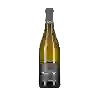
Winery Terres ValdèzeMerlot
This wine generally goes well with beef and game (deer, venison).
Food and wine pairings with Merlot
Pairings that work perfectly with Merlot
Original food and wine pairings with Merlot
The Merlot of Winery Terres Valdèze matches generally quite well with dishes of beef or game (deer, venison) such as recipes of small stuffed fish from nice or rabbit with kriek and cherries.
Details and technical informations about Winery Terres Valdèze's Merlot.
Discover the grape variety: Merlot
Merlot noir is a grape variety that originated in France (Bordeaux). It produces a variety of grape specially used for wine making. It is rare to find this grape to eat on our tables. This variety of grape is characterized by small to medium sized bunches, and medium sized grapes. Merlot noir can be found in many vineyards: South West, Languedoc & Roussillon, Cognac, Bordeaux, Loire Valley, Armagnac, Burgundy, Jura, Champagne, Rhone Valley, Beaujolais, Provence & Corsica, Savoie & Bugey.
Informations about the Winery Terres Valdèze
The Winery Terres Valdèze is one of of the world's greatest estates. It offers 20 wines for sale in the of Vaucluse to come and discover on site or to buy online.
The wine region of Vaucluse
The wine region of Vaucluse is located in the region of Méditerranée of Vin de Pays of France. Wineries and vineyards like the Domaine Chêne Bleu or the Domaine Chêne Bleu produce mainly wines red, white and pink. The most planted grape varieties in the region of Vaucluse are Viognier, Merlot and Cabernet-Sauvignon, they are then used in wines in blends or as a single variety. On the nose of Vaucluse often reveals types of flavors of earthy, blueberry or dried herbs and sometimes also flavors of savory, anise or cinnamon.
The wine region of Méditerranée
Méditérranée is a PGI title that covers wines produced in a large area of the South-eastern coast of France, roughly corresponding to the wine region of Provence but also including Part of the Rhône Valley. The PGI shares its territory with multiple AOC appellations as varied as Châteauneuf-du-Pape, Bandol and Côtes de Provence. The PGI Méditérranée catchment area extends over 10 departments (including the two on the island of Corsica), as well as smaller parts of the Isère, Loire and Rhône departments. Viticulture is essential to the culture and economy of this part of France.
The word of the wine: Smoked
Qualifier of smells close to those of smoked food, characteristic, among other things, of the Sauvignon grape variety; hence the name of smoked white given to this variety.














